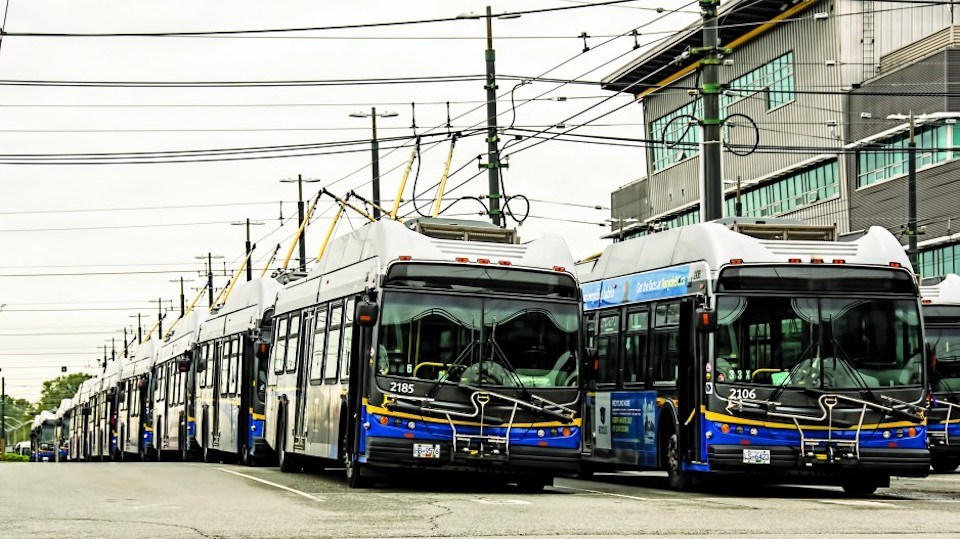In the last five years, the number of car accidents reported to ICBC has decreased considerably but tens of thousands still occur in the Lower Mainland every month. In 2021, there was an average of just under 14K per month.
With numbers that high, it stands to reason that the most seasoned or even professional drivers are occasionally involved in crashes.
If a busload of people is involved in a car accident, what is the protocol? How does TransLink instruct its bus drivers to handle it?
"Each incident is handled on a case-to-case basis depending on severity," a spokesperson for TransLink tells V.I.A. over email. "Operators are instructed to inform Coast Mountain Bus Company dispatchers of what happened, and the next steps depend on the circumstances." (CMBC is TransLink’s contract operator for bus transit services in Metro Vancouver.)
They add that "as most buses are equipped with cameras, the video is reviewed by Transit Supervisors to see if any policies were broken and need to be addressed."
What are the Vancouver bus drivers told to do?
In the event of an emergency, bus operators are trained to first and foremost make sure everyone on board is okay and that the other party involved in the accident is okay.
"Then, similar to any vehicle accident, they will exchange information, which includes driver’s license number, bus number and insurance information," says TransLink.
TransLink liaises with ICBC while the investigation is ongoing. As for passengers on-board, in the event of an accident, they have no obligation to remain on board the bus or even on-site.
"They are, however, encouraged to do so for a proper assessment of the situation by the necessary parties," says the spokesperson, but it is at a passenger's discretion if they want to.
Depending on the severity of the crash, i.e. if the bus you're on board can't continue the journey, the next bus in line will pick up passengers. TransLink says that is generally faster than sending another bus from the depot.
Does ICBC handle cases involving public transit differently?
Overall ICBC says there are "no major differences in how TransLink and privately owned bus claims are handled." However, when an incident occurs and the transit company submits a claim to ICBC it is assigned to a commercial claims team for handling.
The claims process is similar to other commercial vehicles, but there are differences in the types of claims and losses they incur. For instance, an incident involving a TransLink bus may involve damage to overhead trolley wires, bus shelters, or injured bus passengers.
Despite these differences, ICBC assures, transit claims are subject to the same policies and regulations as everyone else.
If passengers want to seek legal counsel after being aboard a bus that was in an accident, TransLink has no policy prohibiting it and ICBC says "it’s the same as if someone is involved in a crash as a passenger of a vehicle." Anyone can submit a witness report or an injury claim. They also have a document that outlines what to do after a crash.



